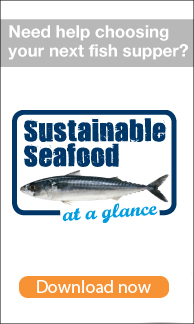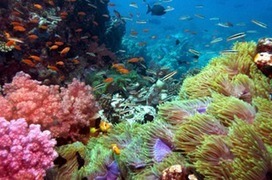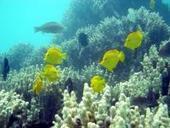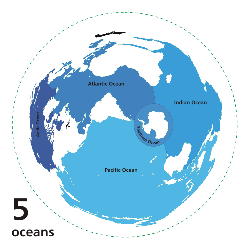Published on: June, 1 2011 – Richard Black, Environment Correspondant BBC News – BBC News – Acid oceans turn ‘Finding Nemo’ fish deaf.
Clownfish, the spectacular tropical species featured in the movie Finding Nemo, appear to lose their hearing in water slightly more acidic than normal.
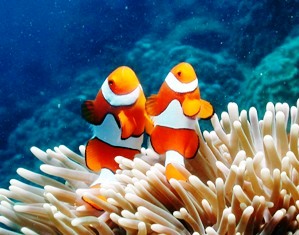 At levels of acidity that may be common by the end of the century, the fish did not respond to the sounds of predators.
At levels of acidity that may be common by the end of the century, the fish did not respond to the sounds of predators.
The oceans are becoming more acidic because they absorb much of the CO2 that humanity puts into the atmosphere.
Scientists write in the journal Biology Letters that failing to move away from danger would hurt the fish’s survival.
“Avoiding coral reefs during the day is very typical behaviour of fish in open water,” said research leader Steve Simpson from the School of Biological Sciences at the UK’s Bristol University.
“They do this by monitoring the sounds of animals on the reef, most of which are predators to something just a centimetre in length.
“But sounds are also important for mate detection, pack hunting, foraging – so if any or all of those capacities are gone, you’d have a very lost fish,” he told BBC News.
Previous research has shown that fish also lose their capacity to scent danger in slightly more acidic seawater. The team raised baby clownfish in tanks containing water at different levels of acidity.
One resembled the seawater of today, with the atmosphere containing about 390 parts per million (ppm) of carbon dioxide.
The other tanks were set at levels that could be reached later this century – 600, 700 and 900 ppm.
The more CO2 there is in the atmosphere, the more the oceans absorb – and the more they absorb, the more acidic the water becomes.
In this experiment, the fish could decide whether to swim towards or away from an underwater loudspeaker replaying the sounds of predators recorded on a reef, with shrimps and fish that would take a small clownfish.
In water with today’s levels of CO2, the fish spent three-quarters of the time at the opposite end of the tube from the loudspeaker.
But at higher concentrations, they showed no preference. This suggests they could not hear, could not decipher or did not act on the warning signals.
“The reef has been described as ‘a wall of mouths’ waiting to receive the clownfish,” said Dr Simpson. “What we have done here is put today’s fish in tomorrow’s environment, and the effects are potentially devastating.”
If it takes several decades for the oceans to reach these more acidic levels, there is a chance, the team says, that fish could adapt.
Whether that can happen is one of the outstanding questions from this research. Another is whether other species are similarly affected.
A third question is why the fish are affected by these slight changes in acidity.
There appears to be no physical damage to their ears; the team suggests there could be some effect on nerves, or maybe they are stressed by the higher acidity and do not behave as they otherwise would.
Further experiments are in train that may answer those questions.
Concern about ocean acidification has arisen considerably more recently than alarm over global warming; but already there is ample evidence that it could bring significant changes to ocean life.
The organisms most directly affected appear to be corals and those that make shells, such as snails.
Just this weekend, another team of researchers published findings from a “natural laboratory” in the seas off Papua New Guinea, where carbon dioxide bubbles into the water from the slopes of a dormant volcano.
This local acidity is too much for most corals; instead, an alternative ecosystem based on seagrasses thrives.
With carbon emissions continuing to rise, researchers predicted most reefs around the world would be in serious trouble before the end of the century.


